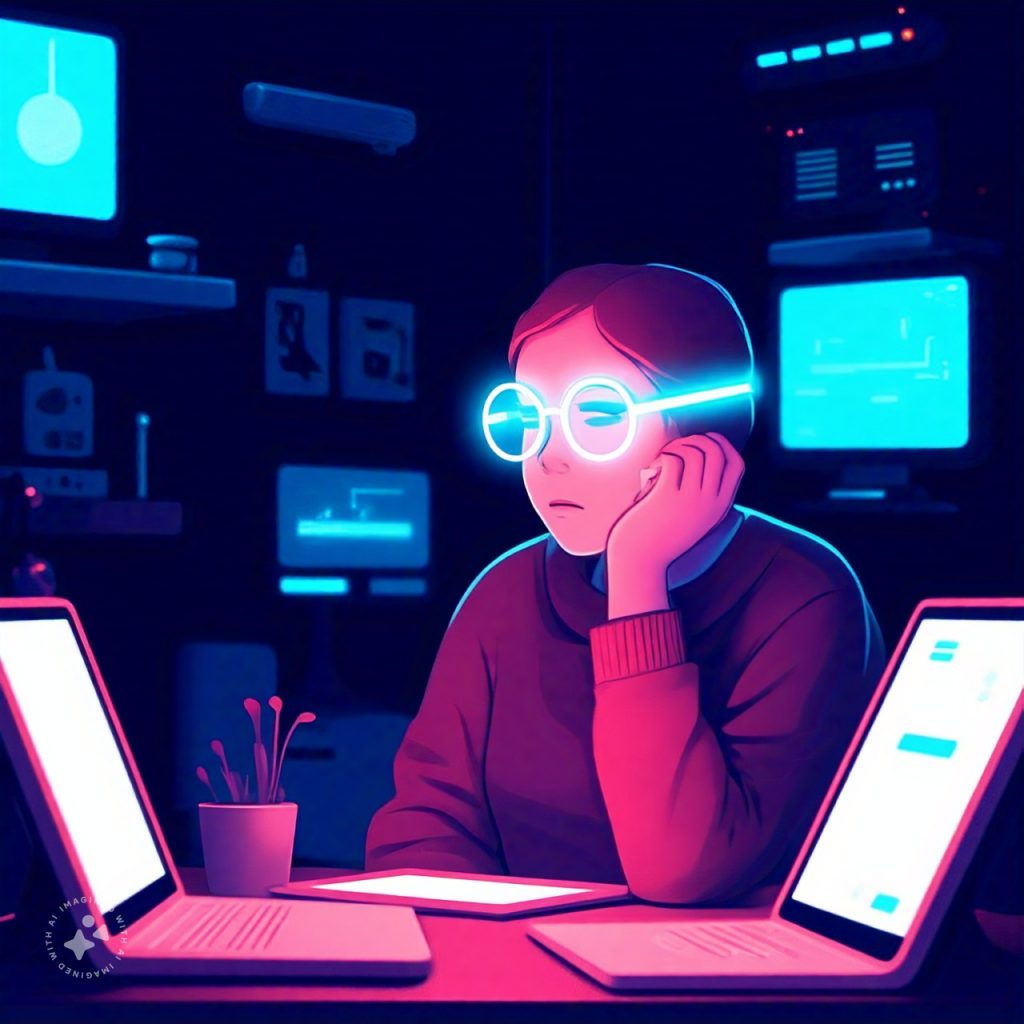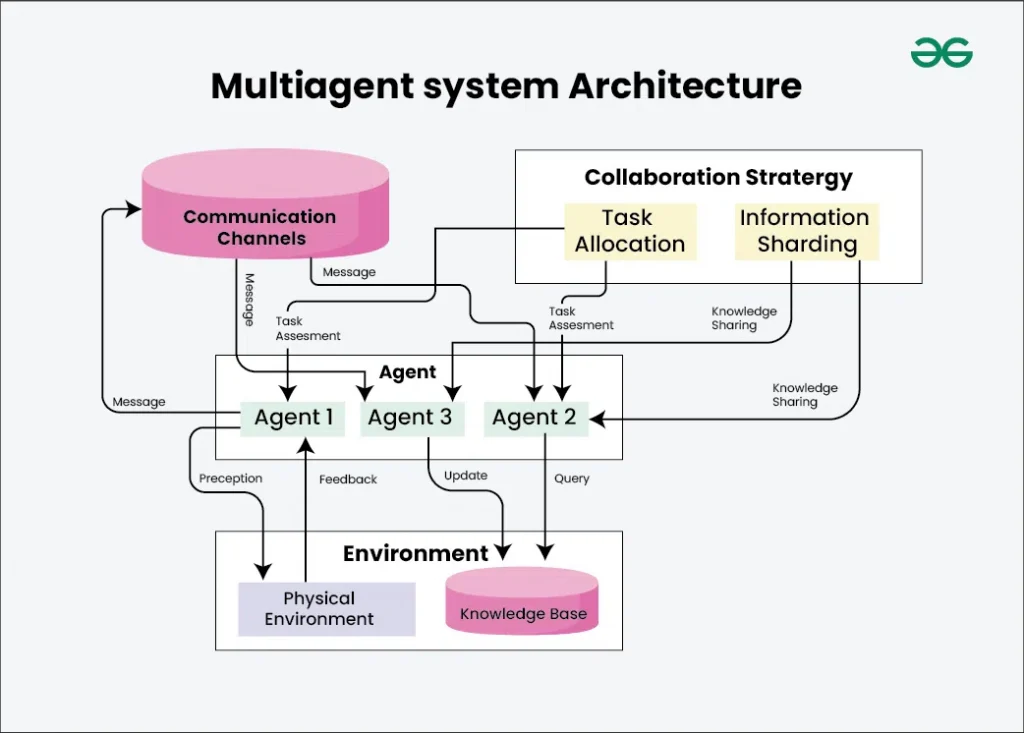Author: Satyen K Bordoloi
Satyen is an award-winning scriptwriter, journalist based in Mumbai. He loves to let his pen roam the intersection of artificial intelligence, consciousness, and quantum mechanics. His written words have appeared in many Indian and foreign publications.
AI has a big problem – data shortage, and it could quickly gobble up innovation, writes Satyen K. Bordoloi as he outlines the solutions being cooked in the pressure cookers called AI companies Data is the new oil, they said, so they scraped websites old and new. Then they came for Reddit threads, Facebook Posts and Twitter feeds. When that wasn’t enough, they even took YouTube videos, e-books and newspapers. To do what: create ‘big data’ to train bigger AI. But guess what, despite burning fossil fuels for hundreds of years, we haven’t yet run out. But data to train,…
Following the phenomenal progress of AI in 2024, the general public is likely to enter 2025 with a sense of yawning boredom towards AI. And that is just as it should be, thinks Satyen K. Bordoloi. On February 15, OpenAI announced its text-to-video model, Sora, along with some impressive videos. The world was in awe of the video quality. In mid-June, Luma and Kuaishou Technology launched DreamMachine and Kling, respectively, prompting a social media frenzy as people uploaded videos created using these models. However, there was no significant buzz when Google launched Veo 2 on December 17 with mindbogglingly surreal…
AI hallucinations have been the bane of every generative AI company, but after major scientific breakthroughs, an increasing chorus of scholars are rooting for it, finds Satyen K. Bordoloi. In the world of humans, hallucinations are said to be responsible for some of the greatest works of inspiration, leading to great art and science. The concept of microdosing on hallucinogens is known among scientists and artists alike. However, as one of my viral articles for Sify attests, generative AI companies want to have nothing to do with hallucinations. Yet, a rising chorus of voices is beginning to argue that it…
The embargo on advanced chips imposed by the US on China has proven to be a blessing in disguise for AI development there, finds Satyen K. Bordoloi. Filmmaking changed forever in the first half of June 2024. On the 10th of that month, Kuaishou Technology announced Kling—a free text-to-video creation AI program. Though OpenAI had announced and teased Sora on February 15th, most of the videos they showcased were enhanced by VFX, and it wouldn’t be released for another 10 months. People only began to create stunning AI videos via Kling and DreamMachine, launched by Luma on June 12th. Whenever…
NVIDIA has again supercharged the AI landscape with their latest JONaS chip. But why do we need AI-specific chips in the first place, asks Satyen K. Bordoloi. Earlier this year, a generative AI startup I worked for faced a common dilemma: a shortage of AI chips. Ideally, we should have had several running on an in-house server, but even securing AI chip time as a Software as a Service (SaaS) at a reasonable rate was a struggle. These chips, building blocks of the future and each with more transistors than the total produced in the world during the 1970s, have…
Much tomfoolery and chicanery is going on in reporting what Google’s new quantum chip, Willow, can do. Satyen K. Bordoloi attempts to separate the wheat from the chaff. Google’s recent announcement of their Willow quantum computing chip has, to put it mildly, made the world go bonkers. And why wouldn’t it? Google claims in its blog/press release/announcement that “Willow performed a standard benchmark computation in under five minutes that would take one of today’s fastest supercomputers 10 septillion (that is, 10²⁵) years — a number that vastly exceeds the age of the Universe.” Mind blown, right? But what does this…
Google has unintentionally been sawing off the branch it sits on, writes Satyen K. Bordoloi, as he profiles the future of search and advertising in the age of AI. Since its advent, the Internet has been a slave to our patience. In 1999, when I first started using the internet search, I heard of people finding their soulmates while waiting for pages to load. Google revolutionized this experience with its lightning-fast searches, making impatience the new norm and dominating both the search and ad markets. Today, though, Google’s search and advertising businesses are on shaky ground, facing challenges from a…
The U.S. government is considering a “Manhattan Project-style initiative” for artificial intelligence development without realising that, unlike nuclear power, AI doesn’t have an end-point writes Satyen K. Bordoloi. When J. Robert Oppenheimer recruited physicists for the Manhattan Project, he gave them a well-defined goal: to build an atomic bomb using uranium and plutonium. The project concluded with the development, testing, and deployment of ‘Little Boy’ and ‘Fat Man,’ which left profound and lasting impacts on the world’s psyche. Now, the U.S. is proposing a similar initiative for AI, driven by concerns about Chinese technological advancements. The Proposal: In November, the…
AI agents have been gaining significant attention recently. As awareness about these systems grows, Satyen K. Bordoloi provides an easy-to-understand explanation for the uninitiated. In the ever-evolving world of AI, agents are currently in the spotlight. Microsoft’s Copilot Studio, Salesforce’s AgentForce, and Oracle’s AI agents are just a few examples pushing the boundaries of automation by enabling companies to deliver personalised experiences and streamline operations. Once considered futuristic, these agents are rapidly integrating into our lives. As I mentioned in a previous article, fictional agents like Jarvis in Iron Man or Agent Smith in the Matrix series are becoming a…
Once taken for granted, SD card slots in our mobile devices are disappearing in newer models. Satyen K. Bordoloi channels his inner Agatha Christie to dive into this curious mystery… I, Agatha Christie, have spent a lifetime unravelling the most baffling mysteries, from the eerie isolation of And Then There Were None to the complex web in Murder on the Orient Express, and the shocking twist of The Murder of Roger Ackroyd. However, one enigma confounds me the most – one that delves into the heart of technological innovation, consumer behaviour, and corporate strategy. The case of the vanishing microSD…













